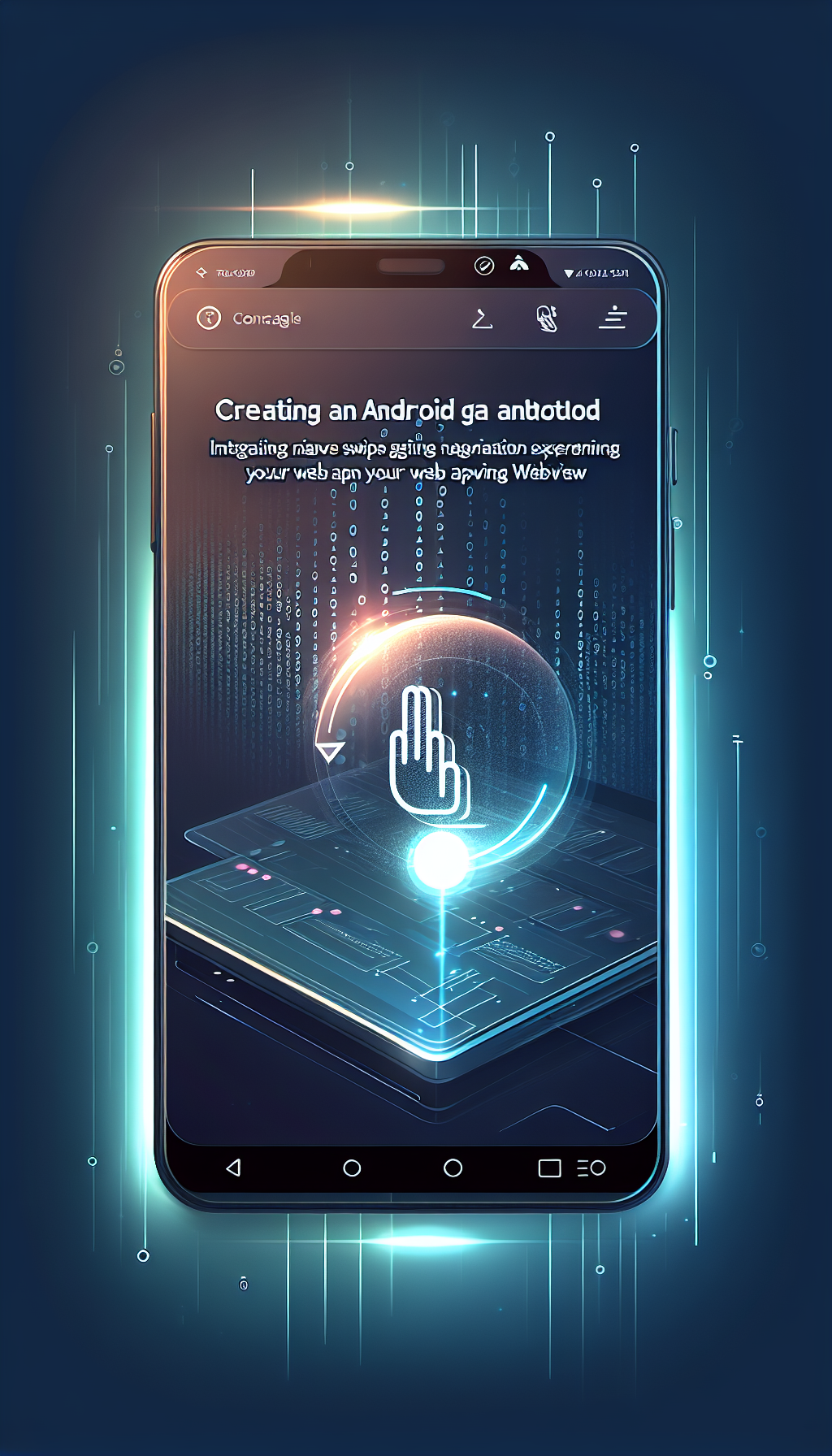
In the ever-evolving landscape of mobile user experience, swipe gesture navigation has become a standard practice that users now expect. Incorporating this intuitive functionality into your web application can significantly enhance user engagement and provide a seamless browsing experience. For many developers, utilizing WebView for Android is a key strategy to bring native app experiences to web-based applications efficiently. In this article, we explore how to integrate native swipe gesture navigation into your web app using Android WebView, and briefly highlight how tools like WebViewGold can streamline the entire process.
Why Swipe Gesture Navigation Matters
Swipe gestures have rapidly gained popularity due to their intuitive nature and ease of use. Navigating back and forth between pages with just a simple swipe significantly improves usability and aligns closely with native Android user experience standards. Users today anticipate these gestures as essential for smooth and efficient interaction within mobile applications.
Leveraging Android’s WebView for Seamless Integration
The WebView component in Android allows developers to display web content within their native Android apps easily. Not only does WebView enable you to package your website or web application directly into an Android app, but it also supports deep integration with native device functionalities, including gesture controls. This integration provides users with a fluid, consistent, and immersive user experience.
Steps to Integrate Swipe Gesture Navigation into Your Web App via WebView
Step 1: Set Up Your Android Project with WebView
First, ensure your Android app project has the WebView component configured. Add the necessary permissions and WebView settings within your project’s manifest and layout files to get started.
Step 2: Implement Gesture Detection Using GestureDetector
Within your Android code, leverage the built-in GestureDetector class. This powerful utility allows your app to detect and respond instantly to user swipe gestures.
Here’s a brief example of setting up gesture detection:
GestureDetector gestureDetector = new GestureDetector(this,
new GestureDetector.SimpleOnGestureListener() {
@Override
public boolean onFling(MotionEvent e1, MotionEvent e2, float velocityX, float velocityY) {
final int SWIPE_THRESHOLD = 100;
final int SWIPE_VELOCITY_THRESHOLD = 100;
if (Math.abs(e1.getY() - e2.getY()) > SWIPE_THRESHOLD)
return false;
if (e1.getX() - e2.getX() > SWIPE_THRESHOLD && Math.abs(velocityX) > SWIPE_VELOCITY_THRESHOLD) {
// Implement forward navigation
if(webView.canGoForward()) webView.goForward();
} else if (e2.getX() - e1.getX() > SWIPE_THRESHOLD && Math.abs(velocityX) > SWIPE_VELOCITY_THRESHOLD) {
// Implement backward navigation
if(webView.canGoBack()) webView.goBack();
}
return true;
}
});
Step 3: Attach GestureDetector to WebView’s Touch Listener
Next, attach your GestureDetector instance to your WebView touch events, enabling the detection of swipes directly within WebView interactions:
webView.setOnTouchListener(new View.OnTouchListener() {
@Override
public boolean onTouch(View v, MotionEvent event) {
return gestureDetector.onTouchEvent(event);
}
});
Enhancing the User Experience Further
To deliver even more robust navigation, consider adding smooth animations or transitions when responding to swipes. This subtle enhancement can dramatically boost user satisfaction by visually reinforcing the gesture effects.
A Simple, Quick Solution: WebViewGold
While manual integration provides flexibility, tools like WebViewGold.com>WebViewGold offer an even simpler path. If you aim to quickly convert your website or web app into a fully functional Android app, WebViewGold is a highly effective solution. It handles the complexity of native integrations—such as swipe gestures—efficiently, letting you focus purely on delivering excellent web content to your audience.
Final Thoughts
Integrating swipe gesture navigation functionality into your web app via Android WebView significantly improves user engagement and delivers a native-like browsing experience. While you can manually set up the gestures as outlined above, leveraging solutions such as WebViewGold offers simplicity and speed. No matter which route you choose, the end goal remains clear: giving your users the best possible experience while seamlessly bridging web and native environments.

Leave a Reply